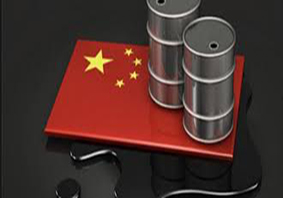
China to award up to 202 mil mt crude oil import quotas for independents in 2019

The Ministry of Commerce said over the weekend that independent oil companies would be able to apply for up to 202 million mt (4.06 million b/d) of crude oil import quotas in 2019.
This would be 41.8% higher than the target of 142.42 million mt (2.86 million b/d) the government had initially set for 2018, according to calculations by S&P Global Platts. But the ministry has so far awarded 149.27 million mt of quotas in 2018, 6.85 million mt higher than the original target.
"Total quotas of 202 million mt for 2019 looks more than enough as the sector is unlikely to witness much incremental demand from end-users, other than Hengli Petrochemical, Zhejiang Petrochemical and a few small independent refiners in Shandong," a Beijing-based analyst said.
Hengli Petrochemical and Zhejiang Petrochemical -- each with a capacity of 20 million mt/year -- are aiming to start commercial operations in 2019.
These two integrated refining and petrochemical plants aim to secure their feedstock from Middle Eastern producers such as Saudi Arabia and Oman, as well as from Latin American producer Brazil, rather than from regional suppliers in the Far East and Southeast Asia, origins which are favored by existing independent refiners, market sources said.
Currently, only one independent refinery, the Shandong-based Lianhe Petrochemical, is awaiting quota allocation of 2.8 million mt/year from MOFCOM. No other refiner is in the queue for new import quotas.
Market sources said ChemChina would need more quotas for its refineries next year compared with 18.52 million mt in 2018. Even Zhenhua Oil would need more quotas for trading, compared with only 80,000 mt in 2018.

QUOTA HOLDERS
Refineries owned by state-owned companies Sinopec, PetroChina, CNOOC and Sinochem do not need a quota to import crude oil. But all other companies including independent refiners -- state-owned and independent trading companies, as well as some state-owned refining companies, such as ChemChina and Norinco, need to apply for quotas to import crude.
MOFCOM has awarded crude oil import quotas to 42 refiners and 16 trading companies so far in 2018. The ministry might increase the quota if oil companies need to import more crude oil. It also allows downward adjustment by quota holders, in which case the remaining quotas are returned to the ministry.
However, MOFCOM will not allocate crude import quotas for 2019 to those who have not imported crude in 2018, it said. The companies need to submit their applications by November 10, the ministry added.
Independent refineries in Shandong province had raised their run rates to around 59% of capacity in August, from a 19-month low of 52.5% in July, according to a report from local information provider JLC released last month.
RUSSIAN CRUDE
To secure crude oil import quotas in 2019, existing quota holders had rushed to the international market to take prompt deliveries amid improving refining margins.
Existing quota holders had used only around 60% of their import quotas by September. To ensure prompt deliveries, they had taken Russia's ESPO Blend crude grade due to the relatively shorter voyage time of about three days.
Ample allocation of crude oil import quotas would continue to support demand for the grade in 2019, market sources said.
Reflecting the recent pickup in refining activities and feedstock requirements by the independent sector, cash differentials for ESPO Blend has staged a strong rebound since early Q3.
Industry and trade sources indicated that Far East Russian grades are highly sensitive to Chinese demand, with at least 50%-70% of the monthly ESPO Blend crude loading program typically snapped up by both state-run and independent refiners in China.
The differential for second-month ESPO crude was assessed at $6.80/b to Platts front-month Dubai assessments on September 28, up 5 cents/b day on day. The premium was last higher on October 1, 2013 at $7/b, Platts data showed.
Cargoes from ESPO Blend's November-loading program offered by equity holders were heard to have been sold at premiums of $4.85/b to as high as $6.70/b to Platts front-month Dubai crude assessments on a FOB basis, market sources said


Gold price edges up as market awaits Fed minutes, Powell speech

Glencore trader who led ill-fated battery recycling push to exit

Emirates Global Aluminium unit to exit Guinea after mine seized

Iron ore price dips on China blast furnace cuts, US trade restrictions

Roshel, Swebor partner to produce ballistic-grade steel in Canada

US hikes steel, aluminum tariffs on imported wind turbines, cranes, railcars

EverMetal launches US-based critical metals recycling platform

Afghanistan says China seeks its participation in Belt and Road Initiative

Trump weighs using $2 billion in CHIPS Act funding for critical minerals

Energy Fuels soars on Vulcan Elements partnership

Northern Dynasty sticks to proposal in battle to lift Pebble mine veto

Giustra-backed mining firm teams up with informal miners in Colombia

Critical Metals signs agreement to supply rare earth to US government-funded facility

China extends rare earth controls to imported material

Galan Lithium proceeds with $13M financing for Argentina project

Silver price touches $39 as market weighs rate cut outlook

First Quantum drops plan to sell stakes in Zambia copper mines

Ivanhoe advances Kamoa dewatering plan, plans forecasts

Texas factory gives Chinese copper firm an edge in tariff war

Energy Fuels soars on Vulcan Elements partnership

Northern Dynasty sticks to proposal in battle to lift Pebble mine veto

Giustra-backed mining firm teams up with informal miners in Colombia

Critical Metals signs agreement to supply rare earth to US government-funded facility

China extends rare earth controls to imported material

Galan Lithium proceeds with $13M financing for Argentina project

Silver price touches $39 as market weighs rate cut outlook

First Quantum drops plan to sell stakes in Zambia copper mines

Ivanhoe advances Kamoa dewatering plan, plans forecasts

















